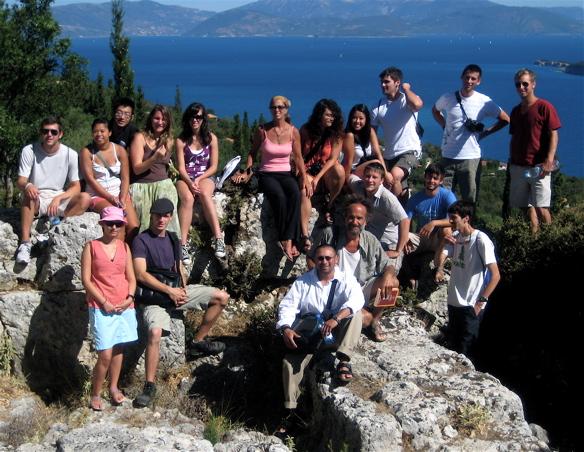Course Details
Syllabus
Program dates
-
Travel dates
-
Course credits
UEPP 437
Total credits: 6
Prerequisites
Sophomore, Junior, or Senior Standing, Open to all WWU majors
Nicholas Zaferatos

The program focuses on applied sustainability studies of Mediterranean urban and island communities in Greece. We begin with explorations of public spaces in Athens as well as the historic and contemporary cultural elements of the city. We then shift focus to the study of traditional medieval villages of Aegean and Ionian Island communities. The course emphasizes studies in sustainable development and includes field investigations, studies of village form, and current issues facing Greece. In our residency stay in Ithaca, students will contribute to an ongoing sustainable development plan for our case study village as part of our continuing research in Ithaca. The planning study has won best student planning study by the American Planning Association and the Planning Association of Washington.
Program Highlights
Explore Mediterranean architecture, urban planning, traditional village development, historic sites and contemporary Greek culture while performing fieldwork in village settings. The program emphasizes sketching, photography, and other observational tools to decode the nature of Greek urban spaces.
The program involves 3 parts:
1) explorations of Athens, examining the city’s historic preservation and development, the pedestrianization of the central city, and visits to historical sites and museums;
2) island hopping to study traditional hilltop settlement villages in the Aegean’s Cycladic Islands; and
3) a planning study for our case study village of Kioni on the Ionian Island of Ithaca.
Expectations of Participants
Activities include visits to museums, cultural sites, swimming, hiking to and around medieval hilltop villages, which do not provide for reasonable accommodations. Must be able to: walk for hours at a time in warm weather, climb stairs and stand for prolonged periods.
Periodic refrigeration provided in many, but not all of our accommodations. Durations of traveling with no refrigeration available.
Students must work with the WWU Disability Access Center, Wilson Library 170, (360) 650-3083, drs@wwu.edu. For service eligibility, a complete diagnostic description from a qualified professional is required. Specific accommodations or services are determined on an individual basis and are modified to meet the unique needs of the student and their academic experience. Accommodation policies and procedures are highly individualized and centered on self-advocacy, realistic self-appraisal, and student growth. Each quarter, students need to activate their approved accommodations for each class. Students choose which of their approved accommodations they want to activate for each class.
We strongly recommend that all students traveling on this Global Learning Program are fully vaccinated against COVID-19 to maximize the safety of the student cohort. Staying up to date with COVID-19 vaccines remains the most important step to protect yourself and your community.
Participants are expected to abide by all attendance policies of the program, including those for classes and excursions, and to adhere to the program schedule. Since the programs are academic in nature, parents, friends, partners, and families are not permitted on any part of the Global Learning Program. Personal travel must be outside of the course dates and not conflict with coursework or excursion schedules. Travel plans should be vetted by faculty beforehand to ensure personal plans do not interfere with meeting the learning objectives of the course.
Image

